

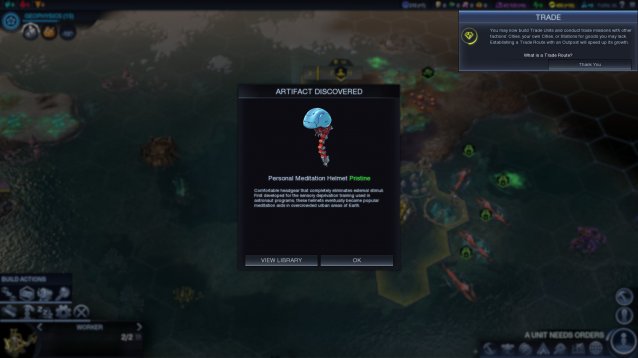
The new Civilization: Beyond Earth expansion Rising Tide has arrived, and it has brought some major game changes along with it. Like previous expansions for Civilization 5, these changes have completely overhauled how the game is played. The sea bed of Beyond Earth’s home planet is now teeming with vibrant new plant and aquatic life, and as such, Rising Tide urges you to take advantage of it. That’s where Aquatic Cities come in!
First things first, why even choose an aquatic city? It seems like such a pain when there is plenty of land to claim for your civilization to start an outpost. But aquatic cities offer a few advantages. Not only can you establish a settlement close to pockets of rich ocean resources, you can also use it as a strategic naval base where you can safely build up a navy in close proximity to a rival, saving yourself several turns of travel time in the event of an attack. Unlike Civ 5 or the vanilla version of Civilization: Beyond Earth, you’ll have buildings and tile improvements that can be made directly on the water, so your settlement will be prosperous even if there is no land nearby. In fact some of these buildings are not available on a land-based settlement, so if you want to benefit from all types of structures across your civilization, use both land and ocean based cities.

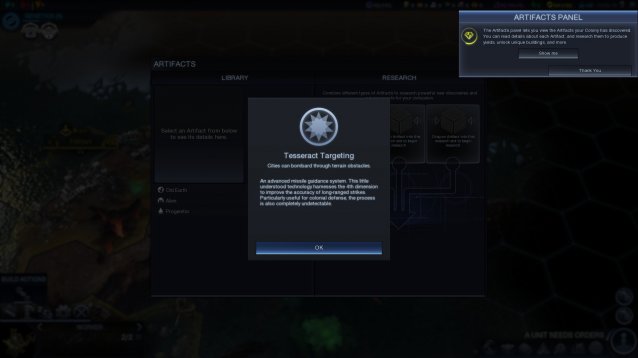
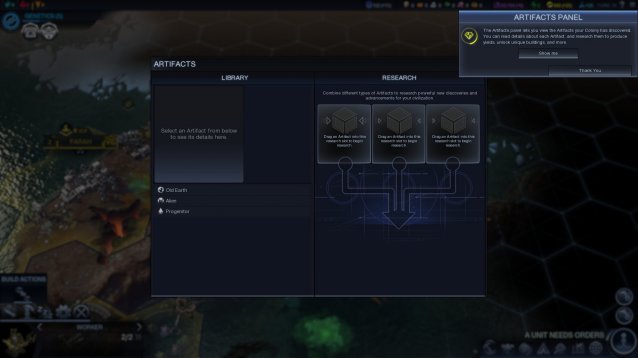
Aquatic cities will also come in handy with your expedition units, which can now go on a variety of sea-based adventures, recovering crashed ships, surveying ancient alien sites, abandoned stations, and more. Expedition units have a limited number of missions, and have to return to a city to replenish their allowance. Sea-based floating cities can be spread out to cover the map more evenly, drastically reducing the time needed for expedition units to travel back and recharge their archaeological batteries, so to speak. This will be more important in Rising Tide than in the vanilla Beyond Earth game. Expeditions can now retrieve artifacts that, once broken down and analyzed, will provide all new benefits and boosts to your civilization in the form of food, science, production, and culture.
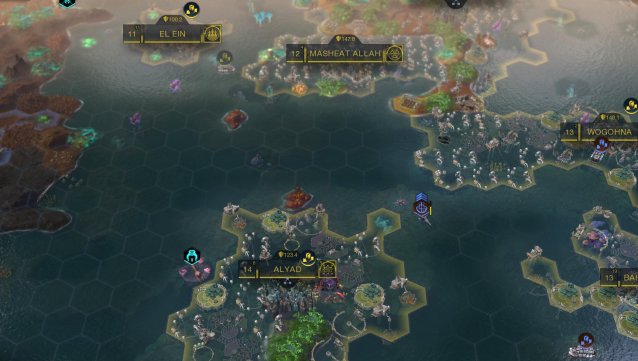
Unlike land based settlements, your aquatic city will not be able to grow and gain tiles based on its Culture output. Instead, you have to move your city to a new tile in order to gain new territory. You can do this once your outpost has grown into a full city. In your Production menu, where you choose what your city is producing, at the very top will be a “Move City” option with a number on the right telling you how many turns it will take (this figure is based on how many buildings you have in your settlement). Choose that option. You will then be directed to click a tile in the immediate radius of your city, directing where it will move. Once the turn cycle is complete, the city will shift to that tile, and you will have gained the tiles immediately surrounding it. Use this to move your city towards new resources and facilitate territorial growth. Early on, you will only be allowed to establish a floating outpost near the coast line. However after you research Planetary Survey in your Technology tree, you will be able to build and move them on any ocean tile you wish.
While it’s somewhat a hassle to have to move the city or buy tiles to make your settlement bigger, it should be noted that the aquatic cities have 50% more Culture output for buying Virtues.
To take full advantage of water based floating cities, it is suggested that you play as the Northern Sea Alliance, whose civilization has boosts allowing the aquatic settlements to move faster. You can also build the Thermohaline Rudder to speed things along.
Above all, don’t be afraid to get your feet wet (ha) and dive head first into using floating aquatic cities in Civilization: Beyond Earth Rising Tide. They’re not that intimidating once you get the hang of them, and they provide enormous benefit and new strategy options for your Civ game. Bon voyage!


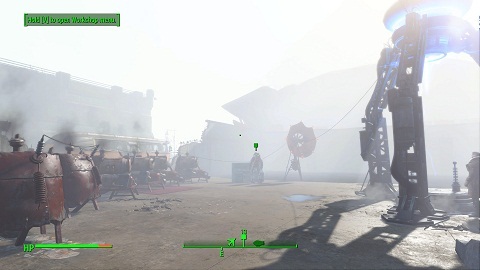

 Top 5 Best Free-to-Play MMORPGs
Top 5 Best Free-to-Play MMORPGs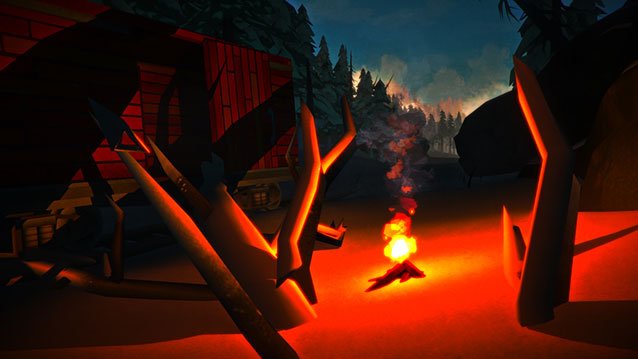 The Long Dark: An Interview With Game Designer Ken Rolston
The Long Dark: An Interview With Game Designer Ken Rolston Call of Duty Ghosts: Nemesis Achievements list
Call of Duty Ghosts: Nemesis Achievements list Political Campaigns Are Tracking You on Facebook, Here's Why
Political Campaigns Are Tracking You on Facebook, Here's Why Wildstar Reloaded: Character Classes guide
Wildstar Reloaded: Character Classes guide